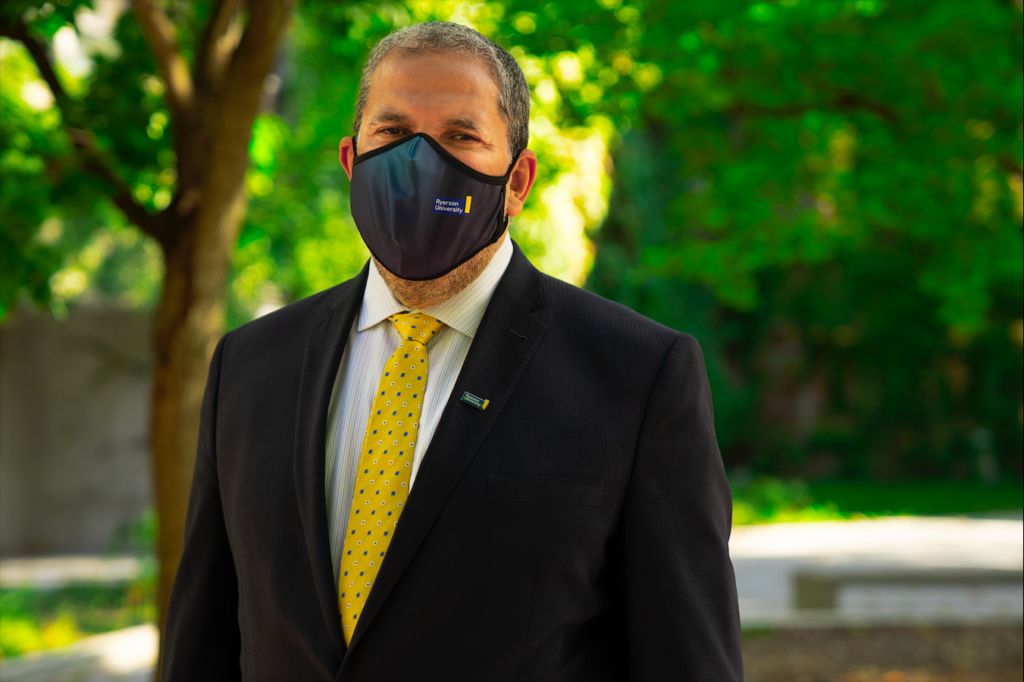Mohamed Lachemi reflects on students’ response in an op-ed for the Ryersonian

One year after our university went virtual due to the COVID-19 pandemic, the word that comes to mind when I think of how Ryerson students have responded is: resilience.
The change from having an on-campus experience to virtual learning took place literally over the course of one week last March. Despite the dramatic shift, our students and indeed our entire community, quickly adapted to continue the important work of learning and teaching in unparalleled circumstances.
I want to be clear, though: I recognize that this shift has not been easy for our community and I am well aware of the challenges that students are facing.
For first-year students, this has not been the start to your post-secondary experience you had hoped for or imagined. For upper year students, shifting to the virtual model mid-semester and spending so much time away from friends and colleagues has created a sense of disconnection.
Support for students
Convocation is a major milestone in the lives of our graduates and their families, and had to be carried out virtually for the class of 2020, and will be virtual for spring 2021 graduates too. Varsity athletics have been cancelled and the social on-campus experience that is so central to the overall university experience has been put on hold. Keeping everyone as safe as possible has meant sacrificing some of the most special moments of university life.
We have all had to learn on the fly, adjusting and adapting to circumstances that would have been unthinkable at the start of 2020.
It has, no doubt, been a stressful time for everyone. Mental health issues are a prime concern, and our university continues to develop programming and resources to help support students and to help them succeed.
I encourage all students to seek any support you need from the Centre for Student Development and Counselling. That includes mental health resources and academic accommodation support (AAS). The AAS team was able to shift to a completely virtual model while developing enriched programming and resources for students and instructors this year. Ryerson’s STRIVE online program offers drop-in learning strategy and assistive technology support for all students registered with AAS.
For students who might need help navigating the world of the virtual university, RU4U can connect you to support that goes beyond online study to include recreation, health and wellness, as well as awards and scholarships. You can elevate your university experience by connecting with your fellow students through programs such as Student Life and Learning support, your faculty’s student groups and associations and the many student groups at the university. And remember, your professors are available to provide support as well. Communicate with them about any questions or concerns you may have, or resources you need.
The future of learning
Over the past several months I have been asked a number of times about the long-term impact of the pandemic on universities and what a post-pandemic landscape will look like for students.
I am optimistic about the months and years ahead, and I believe that while the pandemic has disrupted university education, this disruption has accelerated some trends toward changes that were already in motion. By necessity, universities have had to move quickly and more deeply into new methods of teaching and learning, discovering in many cases that when done thoughtfully and in the right circumstances, these developments can create a more individualized and effective learning experience for students.
No doubt the era in which we are living in will be examined by historians for years to come. What will stand out for you? For me, it is the feeling of gratitude toward our students who have met the challenge with goodwill, determination and resilience. My deepest thanks to all of you.
Mohamed Lachemi,
president & vice-chancellor
